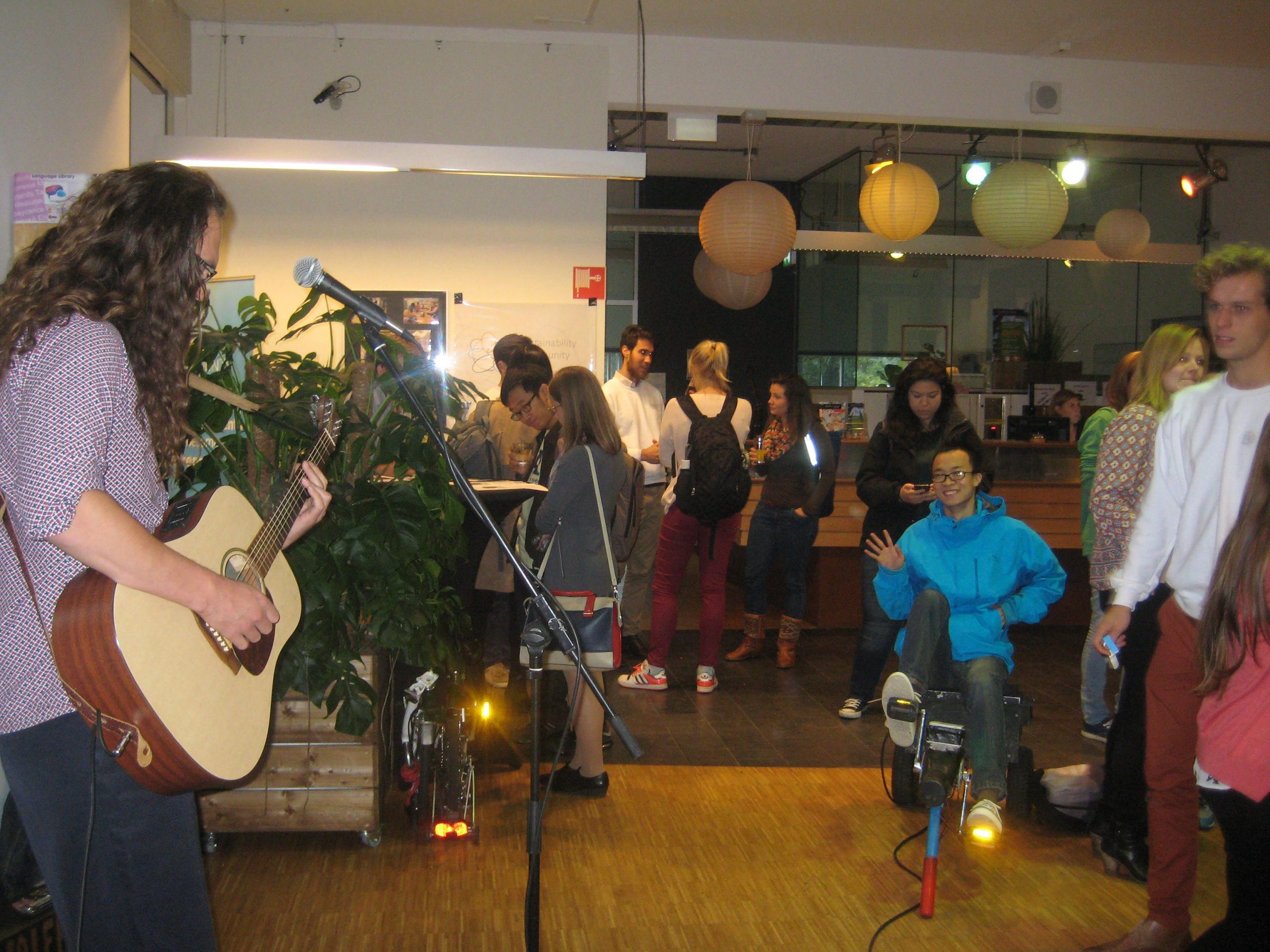“Universities ought to lead society in making the world more sustainable”, says a new student-led organisation, launched last week as part of the Netherlands’ Day of Sustainability on Friday October 9th, 2015.
The Sustainability Community Delft is an umbrella organisation of student-led initiatives including food sharing, thermal storage, solar panels and a student farm that aim to create a “more liveable and sustainable” university campus. “TU Delft students have both the ability and willingness to effect change”, said chairman Dean Gioutsos at the launch event, “and it’s our job to empower them.”
Following a brief ceremony in which student organisations committed to improving sustainability through better energy use, environmental design, or support in developing countries, the Community’s director, Chris Hellinga, reviewed TU Delft’s sustainability efforts to date. These include the installation of 10,000 m2 of solar panels on campus rooftops, financial constructions for geothermal campus heating which should “deliver around 30% of the university’s heat in a reasonably sustainable way”, and the TU Delft Energy Monitor website that allows us all to keep an eye on the university’s energy use. And while the monitor shows that individual use of heat, gas and electricity on campus has decreased, Hellinga conceded that “there’s still a lot to do” before TU Delft reaches the long-term goal to improve energy efficiency by 30% in 2020, compared to 2005 levels. All Dutch universities have committed themselves to this goal.
By way of inspirational sustainable thinking, Maurits Groen, entrepreneur and founder of Dutch non-profit organization, WakaWaka, spoke next. WakaWaka, which means ‘bright light’ in Swahili, donates LED lamps to some of the 1.2 billion people worldwide with no access to electricity. Motivated to start this foundation by what he referred to as the “horrors of kerosene”, Groen described the daily scenario in homes across the tropics where people are forced use highly-flammable kerosene for light, warmth and cooking after dark. “Every year, 300,000 people die and 6 million more are affected by kerosene burns”, said Groen, “and they pay between 30 and 38 billion dollars a year to use the kerosene.” Using the ‘Buy One, Give One’-business model, WakaWaka now produces high-tech low-cost lamps-cum-mobile-chargers fuelled by solar energy for millions of the world’s poor.
Finally, three “Challenge Pitches” suggested the following: highlighting awareness of sustainably produced food, energy and water at TU Delft’s new yearly International Festival of Technology. Another proposed the establishment of a Student Farm to strengthen the link between food source and user. The last speaker announced that building of the long-awaited Green Village (TGV), a sustainable, lively and entrepreneurial environment on the TU Delft campus, is expected to begin early next year. Now that a 2.5 million Euro subsidy has been awarded.



Comments are closed.